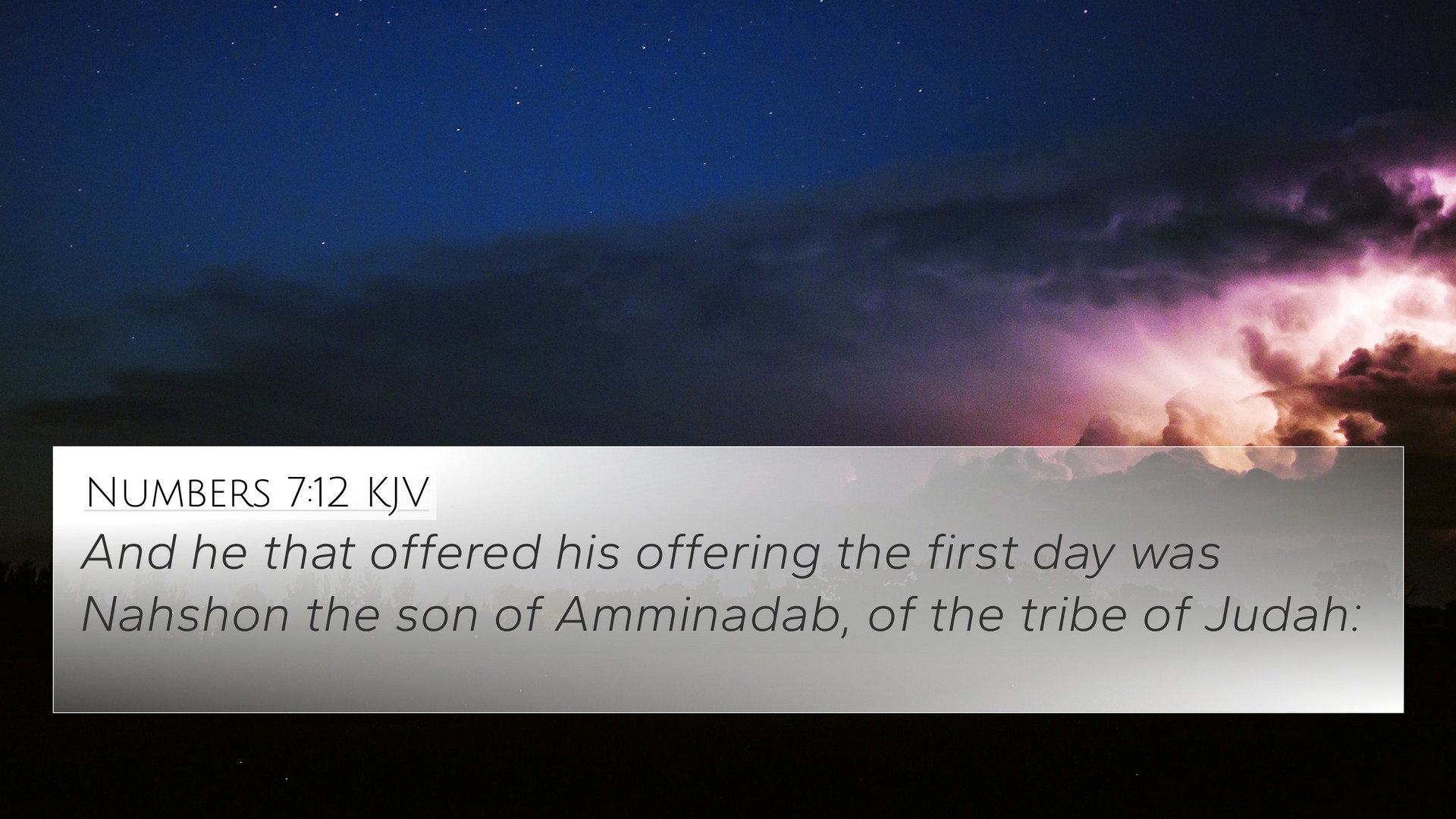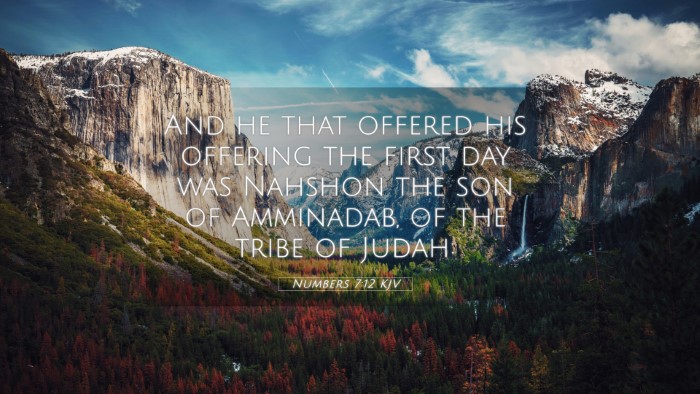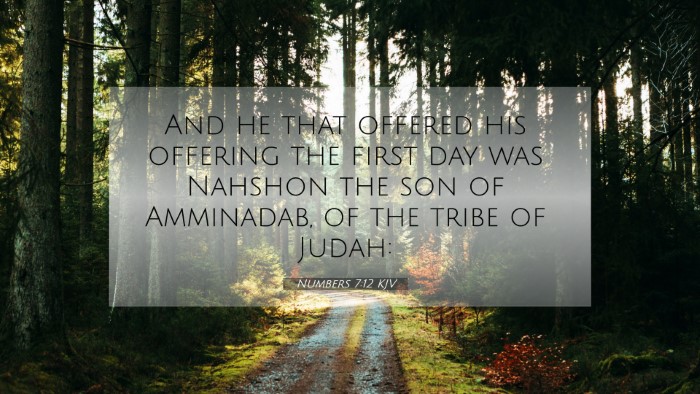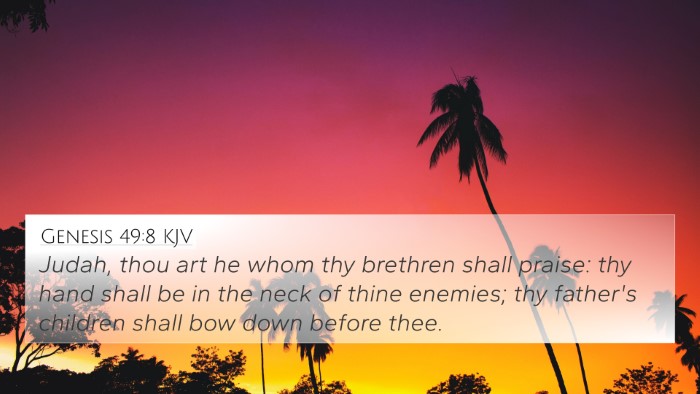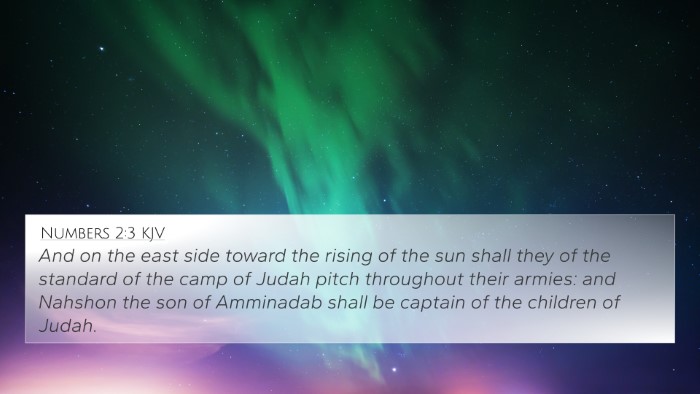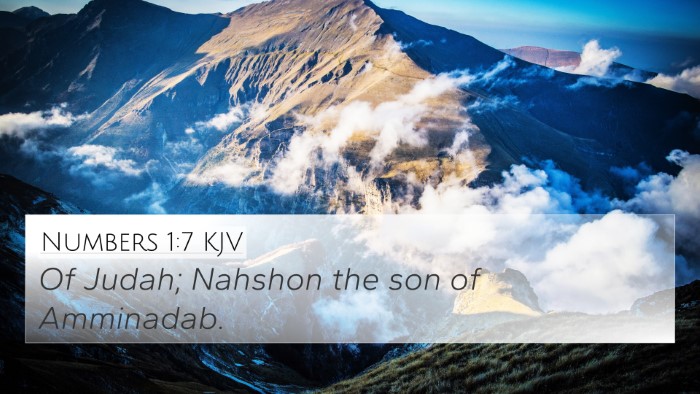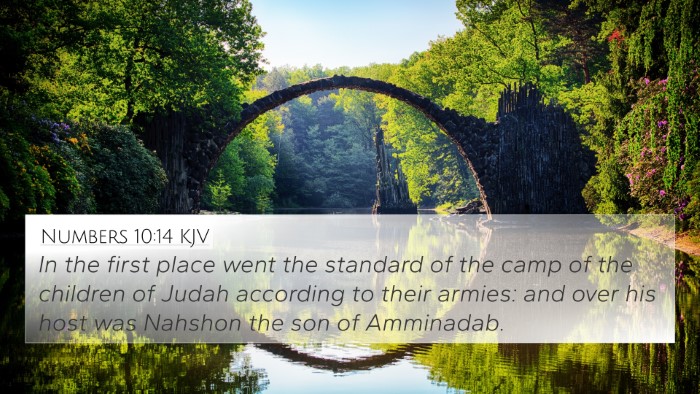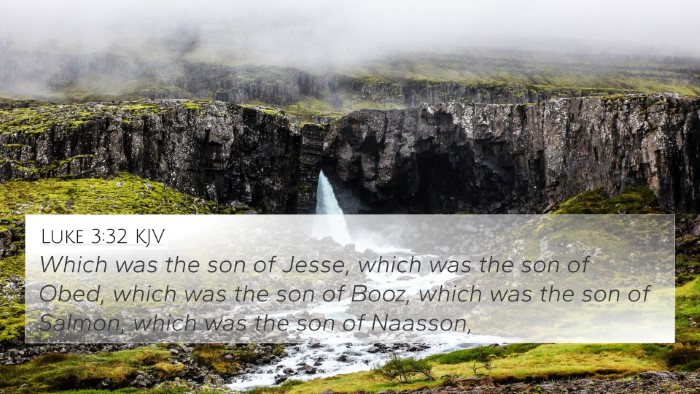Understanding Numbers 7:12
Verse: "And he that offered his offering the first day was Nahshon the son of Amminadab, of the tribe of Judah." - Numbers 7:12
This verse is part of a longer passage where the leaders of the tribes of Israel present their offerings for the dedication of the altar. The context provides insight into the seriousness of offerings and the order established by God among His people.
Summary of Meaning
The significance of Numbers 7:12 can be understood through several key points:
- Leadership and Representation: Nahshon represents the tribe of Judah, highlighting the importance of leadership within the tribes. His position illustrates God's design of order within His chosen people.
- First Offerings: The term "first day" emphasizes God's preference for priority in offerings. The first fruits or initial offerings are often seen as symbols of honor and devotion to God.
- Tribal Identity: Mentioning the tribe of Judah is significant as it holds a prominent place in Israel's history; the Messiah would later come from this line, emphasizing the long-term significance of tribal identity.
- Divine Ordinance: The meticulous nature of the offerings collected shows the structured worship God demanded from His people, aiming to cultivate holiness and separation from the world's practices.
- God’s Presence: The offerings served as a means for the community to express gratitude and seek God's favor, demonstrating the relational aspect of worship.
Related Bible Cross-References
To deepen your understanding of this verse and its themes, consider the following cross-references:
- Exodus 28:1-3 - Discusses the role of the priests, reminding of their duties in mediating between God and the people.
- Leviticus 23:10 - Introduces the concept of first fruits, which connects to the importance of giving the first and best to God.
- Numbers 1:4-16 - Details the leaders of the tribes, giving context to Nahshon's significance in the leadership structure.
- Genesis 49:8 - Prophecy concerning Judah, reflecting the tribe's importance and future legacy.
- Hebrews 7:14 - Paul references Judah in discussing the priesthood of Christ, tying back to the lineage implications of this verse.
- Matthew 1:2-3 - The genealogy of Jesus includes Judah, illustrating the fulfillment of the Old Testament prophecies through Nahshon’s lineage.
- Psalm 78:68-70 - Reflects upon God's choice of Judah, underscoring the historical significance of the tribe.
- John 12:32 - Jesus speaks of drawing all people to Himself, echoing the inclusive intention behind God's plans for all tribes.
- Revelation 5:5 - Highlights Jesus as the Lion of the tribe of Judah, tying historical lineage to divine purpose.
- 1 Peter 2:9 - Describes believers as a chosen people, similar to the Israelites, further stressing God's work through chosen leaders like Nahshon.
Thematic Connections
In studying Numbers 7:12, several themes emerge that connect this scripture with others throughout the Bible:
- Faithfulness in Offering: Numerous verses emphasize the importance of offering, such as Malachi 3:10, where God invites His people to test Him through their sacrifices.
- The Role of Leaders: The emphasis on leaders in James 3:1 warns of the greater judgment upon those who teach, reflecting back on Nahshon's responsibility.
- Tribal Significance: The importance of tribes is furthered in the context of Revelation 7:4-8, where the tribes of Israel are recognized in the end times.
Conclusion
Numbers 7:12 serves as a rich verse that encapsulates themes of leadership, devotion, and the structure of worship within Israel's community. The references to Nahshon and the tribe of Judah provide a glimpse into the historical and theological tapestry woven throughout Scripture, underscoring the integral role of offerings in approaching God.
Tools for Deeper Study
For those interested in exploring further, here are some resources to use for cross-referencing biblical texts:
- Bible Concordance: A useful tool for locating verses and themes throughout Scripture.
- Bible Cross-Reference Guide: Guides that provide connections between related scriptures.
- Cross-Reference Bible Study: Techniques and methods to uncover interconnected biblical themes.
Finding Cross-References
If you're looking to find cross-references for a specific verse, consider using a systematic approach:
- Utilize a Bible chain reference system to follow thematic connections.
- Employ a Bible reference resource that categorizes verses by themes and topics.
- Practice identifying connections between Old and New Testament teachings.
